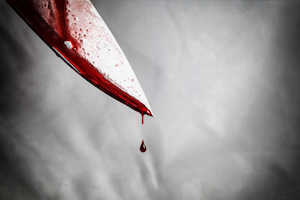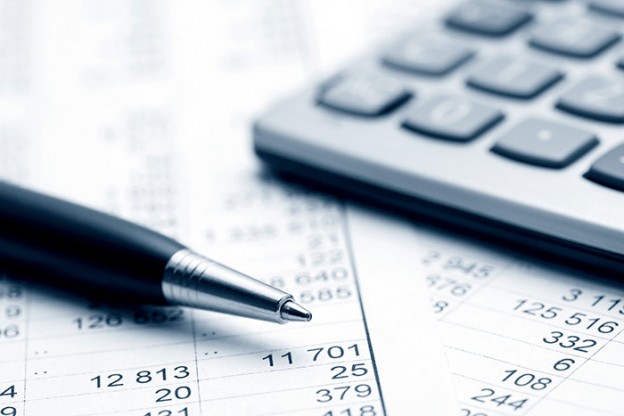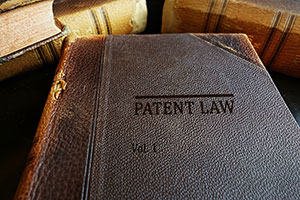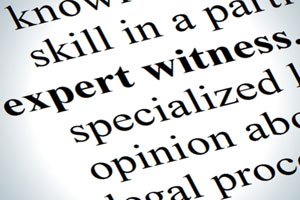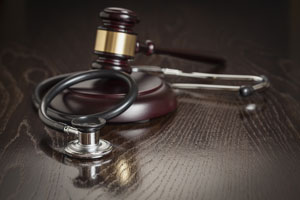Plaintiffs in wrongful death cases routinely ask expert witnesses to compute the loss of the victim’s anticipated contributions to a family. The experts generally rely on past earnings as part of their analysis. Whether the belated disclosure of that data renders an expert’s opinions unreliable or otherwise requires exclusion of the expert’s opinion was the issue in a recent federal case in the District of Nevada.
Facts of the Case
Nickles and Dimes, Inc., a company that owns and operates amusement arcades in shopping malls, employed Charles Wyman as a route manager. Wyman was electrocuted while servicing a “claw” game machine in Las Vegas. The machine was manufactured by and purchased from Smart Industries Corporation.
Unbeknownst to Wyman, the claw machine was electrically charged because a power wire and a grounding wire inside the machine were reversed. Wyman was in contact with the electrified machine for about ten minutes before a firefighter unplugged it. Wyman died without recovering consciousness.
Wyman’s estate, several of his surviving family members, and the company that insured Nickles and Dimes filed lawsuits against Smart and other entities for wrongful death. All of the lawsuits were eventually removed to federal court and consolidated.
Some claims have been settled or dismissed. The remaining liability question is whether the claw machine left the factory in a defective condition. The disputed damages issue relates to lost financial support arising from Wyman’s death.
Expert Report
Terrence Clauretie prepared a preliminary expert report on behalf of the Wyman family members. His report calculated the financial support Wyman would have contributed to his family if he had not died. That report was disclosed within the time set by the court’s scheduling order.
Years after the preliminary report was filed, Smart moved to strike Clauretie as an expert witness. Smart complained that the expert report was incomplete when it was filed because Clauretie did not produce income records in support of the report. Smart also complained that the family members did not provide income records in discovery and that the income information Clauretie reviewed was so vaguely described that Smart could not “discern with certainty” the information he received.
The family members responded that the preliminary report made clear that it was based on incomplete information and that additional information would be provided later. The preliminary report stated that the final calculation was unlikely to differ significantly from the preliminary calculation.
After discovery closed, Clauretie received tax information from 2011 to 2013 and prepared a supplemental report that included a final estimate of loss. The final estimate did not differ from the preliminary estimate.
Smart’s Objections
Smart premised its motion to strike on the argument that a preliminary report does not contain a “complete statement” of all the expert’s opinions as required by Rule 26(a)(2)(B). It also argued that Clauretie’s preliminary report did not include all facts and data he considered or exhibits that would be used to support his opinions.
Smart also objected that Clauretie based his report on statistical data regarding average households rather than Wylie’s actual income. That methodology, in Smart’s review, is unreliable and rendered his opinion speculative.
Smart conceded that Clauretie may have reviewed tax information before he prepared his preliminary opinion but complained that it did not know what information he reviewed. Smart asked the court to strike Clauretie as an expert witness because it could not conduct meaningful discovery of the facts that supported his final opinion.
Reliability Is a “Flexible Concept”
The district court reviewed Clauretie’s opinions for relevance and reliability. Clauretie’s calculation of lost financial support was obviously relevant to an award of damages in a wrongful death case.
Unlike judges who view themselves as the ultimate authority on reliability, the court recognized that its job was not to determine whether the expert’s opinions are sound but whether the expert used a sound methodology to arrive at those opinions.
The court also recognized that reliability is “a flexible concept.” The court recognized that experts are not required to use a perfect methodology, or even the best methodology. Experts have discretion to choose among various reliable methodologies. Whether that choice affects the reliability of their opinions is for the jury to decide.
The district defined its gatekeeping role as screening out “nonsense opinions.” It is not the court’s job to reject impeachable opinions. Unless the expert “lacks good grounds” for an opinion, it is opposing counsel’s job to expose weaknesses in the expert’s analysis through cross-examination, and it is the jury’s job to decide whether to accept or reject the opinion.
Reliability of Clauretie’s Opinions
The court rejected the argument that Clauretie failed to identify the facts upon which he based his opinion. The preliminary report identified the substantial information upon which it was based, including Clauretie’s review of tax returns from 2014 and 2015.
The court also rejected Smart’s claim that it never received those tax returns. The returns were attached to a disclosure that the plaintiffs filed but later withdrew after Smart objected that it was filed after the discovery deadline expired. The court did not allow Smart to pretend that it never received the tax returns. Since discovery was later reopened, Smart could have asked to depose Clauretie concerning his reliance on those tax returns.
The preliminary report indicated that earlier tax returns were not likely to change Clauretie’s opinion significantly. After Clauretie received the 2011 to 2013 tax returns, he prepared a brief supplemental report and confirmed that the additional data did not change his calculation. Nothing in that sequence of events, including the belated disclosure of the 2014 and 2015 tax returns, rendered Clauretie’s opinion unreliable.
Late Disclosure
The court also considered whether the belated filing of Clauretie’s supplemental report justified striking him as an expert witness. Rule 26 requires expert reports to be filed within the time designated by the court. While Rule 26(e) permits supplemental reports, that rule does not create a loophole that permits experts to file incomplete reports before the disclosure deadline.
Rule 37 generally requires the exclusion at trial of opinions and data not included in the report that Rule 26 requires. The court recognized that the rule nevertheless permits relief from its “harsh requirements” when a failure to disclose was substantially justified or harmless. In addition, the rule authorizes the court to impose sanctions that are less harsh than the exclusion of evidence.
Different judges apply Rule 37 in different ways. Judges who take a mechanistic approach require strict adherence to deadlines and believe that courts should rarely decline to exclude expert evidence when the rule is violated. Judges who believe that cases should usually be decided on their merits by juries, not by judges as a sanction for rules violations, are more inclined to exercise their discretion to avoid harsh results.
The court agreed that the plaintiffs offered no satisfactory explanation for their late production of either set of tax returns. While the belated disclosure might not have been entirely harmless, if only because the delayed resolution of a case is theoretically harmful to the administration of justice, the court decided that “the public policy favoring disposition of cases on their merits and the availability of less drastic sanctions” weighed against striking Clauretie as an expert witness.
While Smart did not benefit from timely production of the tax returns, it did receive the preliminary expert report on time. That report incorporated a number of exhibits and explained how Clauretie arrived at his opinions. Smart had the tax returns before discovery was reopened. It manufactured its own prejudice by failing to take Cluaretie’s deposition so it could question him about the tax returns. Nor did Smart move to compel disclosure of the tax returns.
The court noted that Smart was not required to take Clauretie’s deposition or to move to compel disclosure of documents that Rule 26 requires to be produced. At the same time, Smart was not in a position to argue that it was harmed when it knew of Clauretie’s opinions, had his report, and had the opportunity to depose him. Smart could not claim to have been surprised by Clauretie’s opinions since they did not change from the time the preliminary report was filed. Since Smart received the tax returns before a trial date had even been set, the exclusion of Clauretie’s testimony would be an unduly harsh sanction.
The court decided that a lesser sanction than exclusion was appropriate. It allowed Smart to take Clauretie’s deposition and required the Wymans to pay all expenses associated with it. It also required the Wymans to pay attorneys’ fees associated with the motion to strike.
Lessons Learned
The district court judge wisely avoided a knee-jerk response to belated discovery disclosures. The judge’s ruling was tailored to the lack of harm associated with the late disclosure.
Lawyers should understand that some judges are more concerned with enforcing their scheduling orders than with producing just results. Experts and the lawyers who hire them should always do their utmost to either (1) produce reports and data relied upon to support opinions by the date set in the court’s scheduling order, or (2) move for an extension of time to produce that data with a showing of good cause for the delay. Violating a rule and hoping that the judge will not impose a harsh sanction is never a good strategy.


